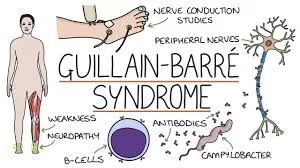Barcelona, Spain – In a groundbreaking study, researchers from the Instituto de Salud Global de Barcelona have uncovered a significant connection between climate anomalies and cholera pandemics. Published in the open-access journal PLOS Neglected Tropical Diseases, the research suggests that climate events, such as El Niño, may have played a crucial role in the spread and establishment of novel cholera strains.
The study, led by Xavier Rodó and his team, examines the impact of anomalous climate conditions on cholera outbreaks, particularly focusing on the sixth cholera pandemic, which spanned from 1899 to 1923. This pandemic, which saw a devastating loss of life, is now being reevaluated through the lens of climate science.
Historical Insights
Rodó and colleagues employed a combination of statistical and computational tools to analyze historical climate data and cholera mortality records from regions of former British India. Their analysis revealed a striking correlation between unusual patterns of cholera deaths and abnormal seasonal temperatures and rainfall levels during the early 20th century. These anomalies are consistent with an El Niño event, which is known for disrupting weather patterns.
The timing of these climatic anomalies aligns with the emergence of a new, invasive cholera strain during this period, suggesting that such climate events may have facilitated the spread and establishment of this novel strain.
Current and Future Implications
The research also draws parallels between historical climate conditions and recent events. The study’s authors observed similar patterns of climate anomalies associated with changes in cholera strains during the ongoing seventh cholera pandemic, which has claimed over a million lives since 1961.
Looking ahead, the researchers used climate prediction models to project future risks. They found that increased climate variability and extreme weather events driven by climate change could heighten the risk of new cholera strains emerging through the end of this century.
Call for Further Research
Dr. Rodó and co-author Dr. Mercedes Pascual emphasize the need for further investigation into the interaction between climate change and pathogen evolution. They note, “Variation in climate conditions or the evolutionary change of a pathogen can be important drivers of major epidemics and pandemics. However, these factors are often studied in isolation. Our research provides indirect evidence that these drivers can interact synergistically to facilitate the emergence and widespread transmission of new cholera strains.”
This study underscores the importance of integrating climate science with epidemiological research to better understand and mitigate the impacts of climate-driven disease outbreaks. As the world faces ongoing and future health challenges, such interdisciplinary approaches will be crucial in developing effective strategies for disease prevention and control.












